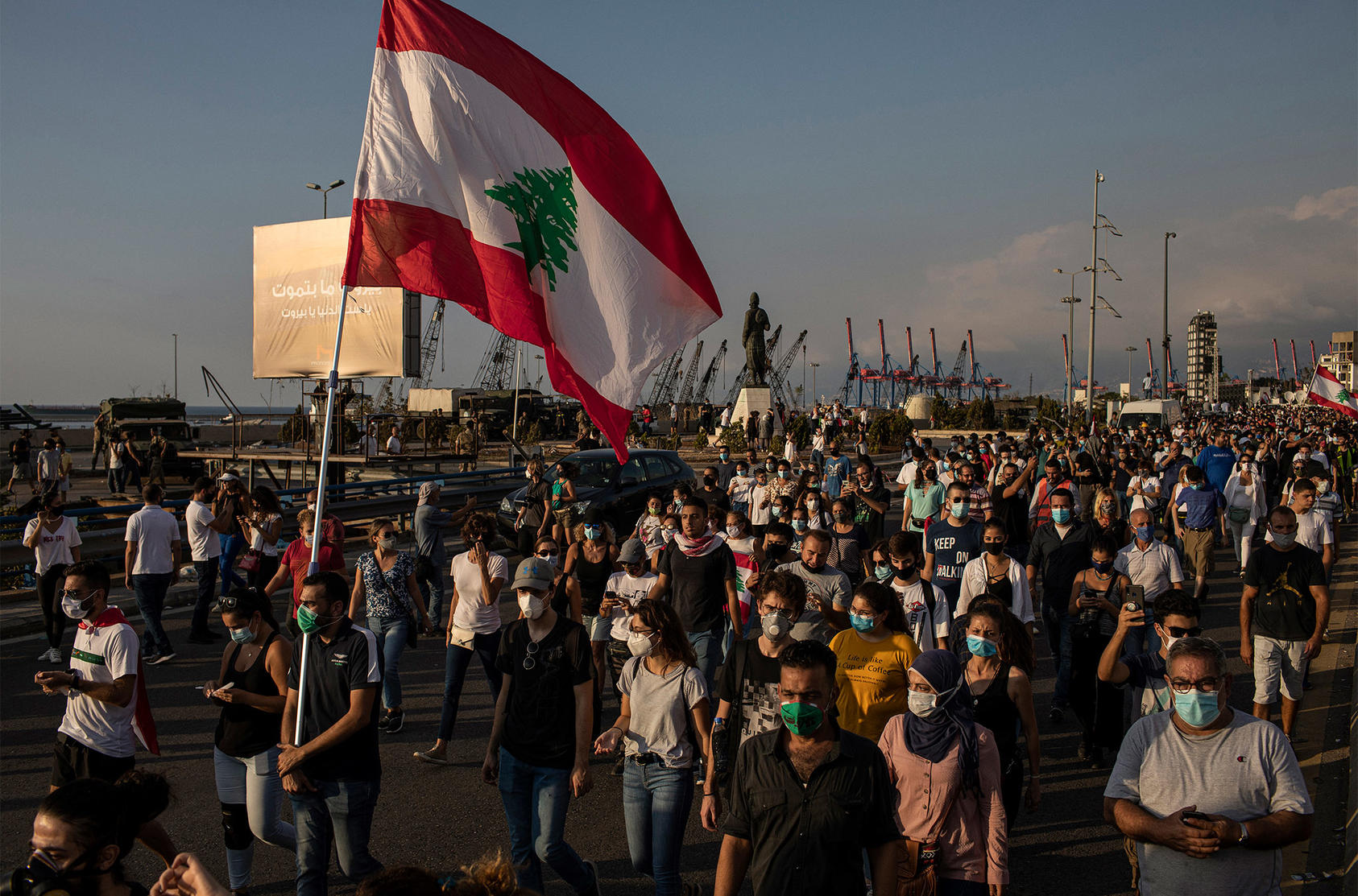Friday of this week marks three years since the 2020 Beirut Port explosion, which led to at least 218 deaths and 7,000 injuries and left an estimated 300,000 homeless.
Families of the victims and several activist and political groups are preparing for Friday in assertion of their unwavering search for justice.
“JUSTICE for them, for us, and against all odds”
Social media pages of the August 4 collective of families of victims and victims of the blast and other groups posted a call for a march on the 4th of August to “remember the victims and remind the world that justice is still waiting”, under the title of “JUSTICE for them, for us, and against all odds.”
The post was followed by another call that used the Lebanese government’s “ahla bhal talleh” campaign slogan.
While the original slogan was part of a state campaign to promote tourism and Lebanese and foreigners coming back or visiting the country, the collectives’ post featured an additional phrase translating to “but we don’t want justice to take a summer vacation” with a picture of the post-blast grain silos.
The two posts featured the logos of the Beirut Fire Brigade, the August 4 collective, as well as the organization of the families/parents of the victims of the Beirut Port Blast, in addition to tagging a number of human rights, legal, and journalistic organizations.
The march is scheduled to start at 4:00 PM Beirut time, beginning at the Beirut fire brigade center at Karantina towards the Port of Beirut at 5:30 PM Beirut time.
Fugitives on the Way to Parliament
On Tuesday night, a number of activists threw pictures of Lebanese members of parliament, politicians and public office holders on the sidewalk of the road towards the Lebanese parliament’s entrance with their names and the phrase translating to “Lebanon is governed by fugitives from justice”.
The documents were then covered by red paint mimicking blood and remained on the sidewalk till the next day.
Blocked Investigations
Last March, 38 countries condemned the “systematic intervention” in the investigation into the 4 August Blast in a joint statement delivered by Australia during the 52nd session of the Human Rights Council at Geneva.
Previously, in 2021 and 2022, the survivors of the explosion and the families of the victims sent letters to the member and observer states of the Council urging them to support a resolution establishing an international investigation. The list of signatories included a number of local, national, regional and international organizations.
Political interventions in the investigation have been recurrent and multifaceted, as politicians suspected in the case have filed over 25 requests to dismiss Judge Tarek Bitar – the lead investigator on the case.
In January 2023, Lebanon’s general prosecutor Ghassan Oueidat, himself charged and summoned to investigation by Bitar, ordered the release of all suspects detained in connection to the explosion.
The move was deemed illegal by the Beirut Bar Association, the Lebanese Judges Association and the Lebanese Coalition for the Independence of the Judiciary, as it was bypassing the ongoing investigation and filed a series of lawsuits againt Bitar.
Despite this, the investigation has been unable to move forward since due to obstructions of justice caused mainly by Lebanon’s ruling class.
Other names summoned to investigation include director general of general security Abbas Ibrahim, director general of state security Tony Saliba, former army chief Jean Kahwaji, former intelligence officers Jawdat Oweidat and Kamil Daher, head of the Higher Customs Council Asaad Tufayli, Customs Council member Gracia Al-Azzi, and judges Ghassan Khoury, Carla Sawah, and Jad Maalouf.
Since the start of the investigation, a number of motions were launched against Bitar in attempts to remove him from the case, including but not limited to being charged with several offences such as “usurpation of power” and a travel ban”, in addition to several campaigns to discredit him on television and social media.
Notably, in October 2021, clashes erupted and resulted in the killing of at least six people and the injury of 25 others during a protest in Beirut against Bitar.
Despite the numerous interventions by Lebanese political figures and groups, calls to continue the strive for justice and accountability stand their ground, reiterating the urgency not to forget.
Three years onward, and the families of the victims, citizens of Beirut, and the world awaits justice. On this three-year-mark, citizens are once again faced with the frustration, hopelessness, and loss that has plagued the country for the past three years. In spite of everything, they push on.


